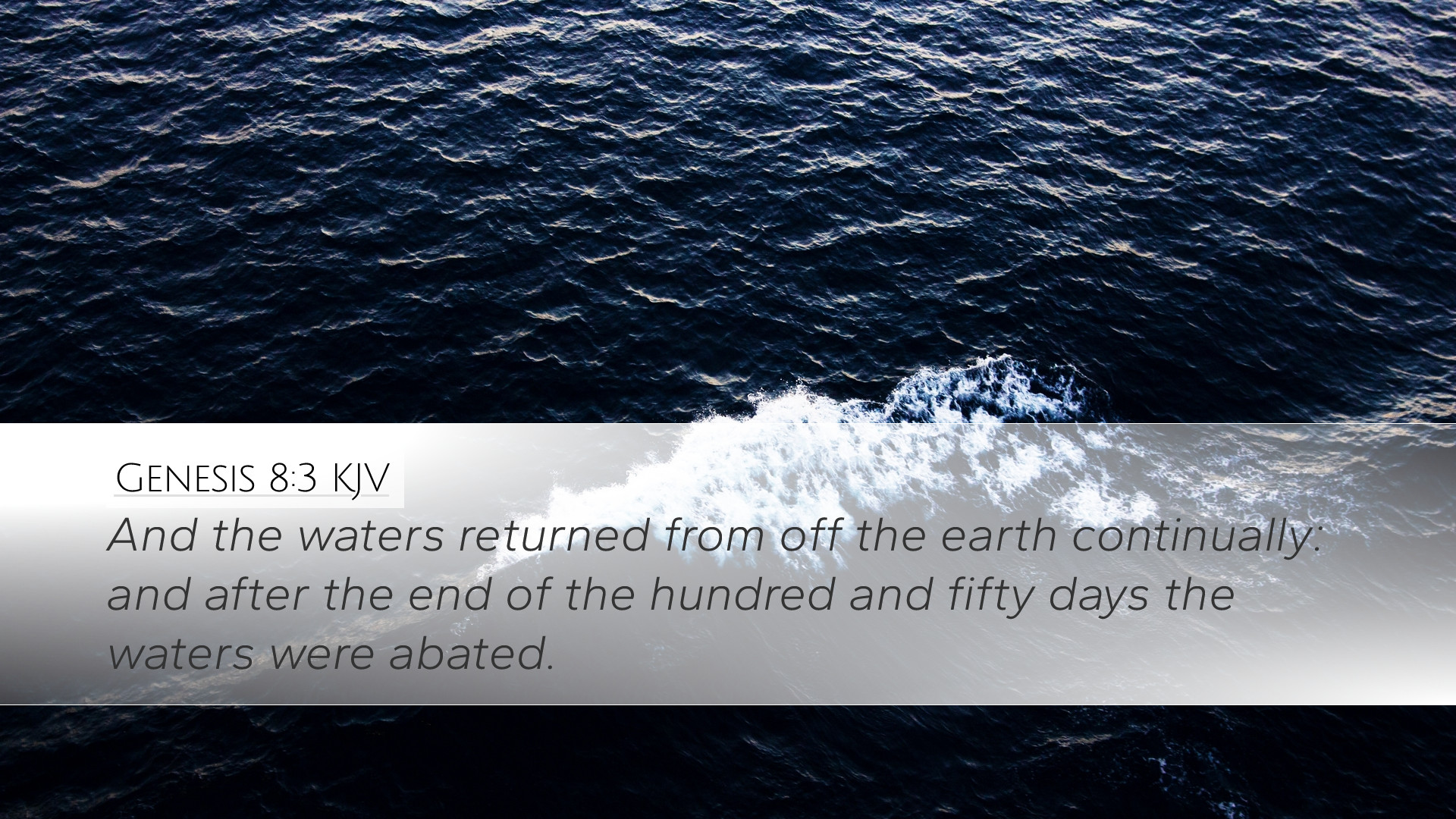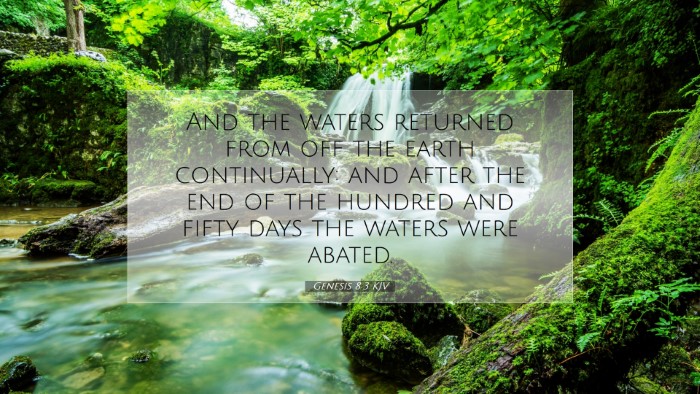Commentary on Genesis 8:3
Verse Text: "And the waters returned from off the earth continually: and after the end of the hundred and fifty days the waters were abated." (Genesis 8:3)
Introduction
The passage of Genesis 8:3 marks a significant moment in the narrative of Noah and the Flood, providing an essential pivot in the biblical account of restoration and divine promise. The waters that had covered the earth are beginning to recede, signaling the end of divine judgment and the preparation for a new beginning.
Contextual Overview
Prior to this verse, the Flood narrative detailed God’s judgment upon a corrupt world through a cataclysmic event that lasted for forty days and nights. The verse signifies a transition as God begins to lift His judgment, showcasing His mercy and the readiness to restore life on earth.
As noted by Matthew Henry, the Flood’s cessation and the receding waters indicate not merely the end of a calamity but also an intentional act of God reflecting His governance over creation. This commentary underscores the order and purpose that God brings to the chaos of human sin.
Theological Insights
- God’s Sovereignty: The abatement of waters demonstrates God's sovereignty over natural elements. As stated by Albert Barnes, the gradual return of the waters showcases God's command over creation, revealing His ability to control the forces of nature.
- Divine Judgment and Mercy: The Flood serves as a symbol of divine judgment, and its receding waters reflect God’s mercy. Adam Clarke points out that while God had to judge sin, He also provided a way for renewal and hope through Noah and his family.
- Restoration Themes: The theme of restoration runs deeply through this verse. The cresting waters symbolize death, but their withdrawal heralds life and re-establishment. The commentaries suggest that this moment prefigures the ultimate restoration in Christ, where death is overcome and life is renewed.
Literary Analysis
From a literary perspective, the formulation of this verse signifies a highly structured narrative culminating in God's redemptive plan. The phrase “returned from off the earth continually” emphasizes a purposeful act rather than random occurrence. The use of “after the end of the hundred and fifty days” indicates a specific timeframe that contributes to the narrative's depth.
According to Matthew Henry, this detail of timing aligns with God’s overall plan, presenting a structured approach to the unfolding events. The recurrence of numbers, particularly in biblical texts, often reflects completeness and divine order, urging the reader to appreciate the meticulous nature of God’s design.
Application for Today
- Hope in Divine Restoration: For pastors and theologians, this passage offers profound hope for congregations facing turmoil. God's ability to restore what was lost can inspire faith in the midst of trials.
- Understanding Suffering: The transition from judgment to mercy may help students of scripture understand the nature of suffering. It highlights that while God may allow difficult seasons, they are not without purpose, leading towards restoration.
- Engagement with Creation: The command and control over natural elements challenge believers to recognize God's continual engagement with creation, encouraging stewardship and respect for ecological balance.
Conclusion
Genesis 8:3 stands as a monumental verse within the Creation narrative, emphasizing God's mercy and sovereignty in the aftermath of the Flood. The insights gained from public domain commentaries enrich our understanding of this pivotal moment, revealing profound theological themes of judgment, restoration, and hope that resonate through the ages. For scholars, pastoral leaders, and students alike, this verse offers invaluable lessons that encourage a deeper faith in God's redemptive work in the world.


